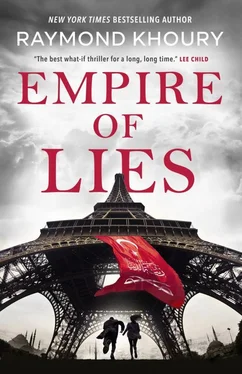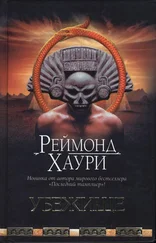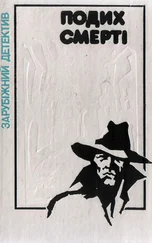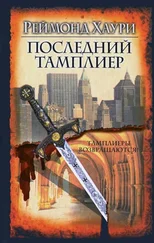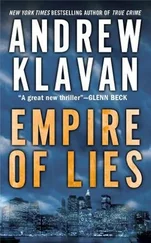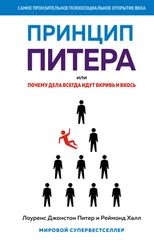Реймонд Хаури - Empire of Lies
Здесь есть возможность читать онлайн «Реймонд Хаури - Empire of Lies» весь текст электронной книги совершенно бесплатно (целиком полную версию без сокращений). В некоторых случаях можно слушать аудио, скачать через торрент в формате fb2 и присутствует краткое содержание. Город: New York, Год выпуска: 2019, ISBN: 2019, Издательство: Forge Books, Жанр: Альтернативная история, Триллер, на английском языке. Описание произведения, (предисловие) а так же отзывы посетителей доступны на портале библиотеки ЛибКат.
- Название:Empire of Lies
- Автор:
- Издательство:Forge Books
- Жанр:
- Год:2019
- Город:New York
- ISBN:978-1-250-21096-8
- Рейтинг книги:3 / 5. Голосов: 1
-
Избранное:Добавить в избранное
- Отзывы:
-
Ваша оценка:
- 60
- 1
- 2
- 3
- 4
- 5
Empire of Lies: краткое содержание, описание и аннотация
Предлагаем к чтению аннотацию, описание, краткое содержание или предисловие (зависит от того, что написал сам автор книги «Empire of Lies»). Если вы не нашли необходимую информацию о книге — напишите в комментариях, мы постараемся отыскать её.
Empire of Lies — читать онлайн бесплатно полную книгу (весь текст) целиком
Ниже представлен текст книги, разбитый по страницам. Система сохранения места последней прочитанной страницы, позволяет с удобством читать онлайн бесплатно книгу «Empire of Lies», без необходимости каждый раз заново искать на чём Вы остановились. Поставьте закладку, и сможете в любой момент перейти на страницу, на которой закончили чтение.
Интервал:
Закладка:
The chef was familiar with and sympathetic to the plight of his desperate countrymen. He gave Kamal some useful insights into what to do now that he was there: how to find shelter and food, how to apply for asylum. Kamal wondered if that was what he’d need to do, at least as a temporary measure, before he understood the place better and figured out how to navigate this new world.
“Amazing that the people of this city can now welcome us,” Kamal commented, “after everything we did to them.”
Orhan’s face clouded. He hadn’t understood the reference.
“Kara Mustafa’s siege,” Kamal explained, his tone quizzical. “All those years ago.”
“Ah.” The chef brushed it off. “It’s such a long time ago. I doubt anyone even thinks about it. Are you a history buff?”
“You could say that.”
“Then you’ll love the museums here. They’re outstanding.”
The chef told Kamal more about them, but one thing he mentioned sank its claws into Kamal and wouldn’t let go.
He felt an urge to get going, and, after promising Orhan he’d come back soon, got up and walked away.
Less than an hour later, he was outside the gates of the Heeresgeschichtliches Museum.
The Austrian Military History Museum.
77
Kamal stood outside the museum, unable to move. The beauty of the building was doing nothing to calm his nervousness about the emotions that entering might stir.
The kebab chef had told him that the museum held large displays devoted to the wars against the Ottomans. Of those, the siege of 1683 was the most renowned. He even said that there was so much on display that viewing it almost felt like being there, a comment Kamal had to resist rebutting, even if he could summon up the detachment to do it playfully.
The memories had nothing playful about them.
He watched as throngs of tourists stepped off buses and made their way to the entrance. Taking a deep breath, he finally pushed ahead and strode through the open gates.
The museum was a nineteenth-century building, built in a grand, neo-Byzantine style with a distinctly oriental flavor. Its two-tone brick façade was decorated with geometric terracotta ornaments and was topped by a crown of stone crenellations peppered with turrets. Three majestic arches led inside.
He had difficulty understanding what the cashier was saying. She eventually pointed at the price on a pamphlet, and he paid for an entrance ticket with six of the euro coins he had taken from the church. She asked where he was from, to which he replied, “Turkey.” The cashier pointed him to an adjacent counter and said something to the woman looking after it. He stepped across, and the woman handed him a curious kit comprised of a small electronic box with a lanyard clipped onto it and a cable that led to a set of earphones. After a bit of give-and-take, Kamal finally understood what she was giving him: it was an audio guide to the museum, and she had selected Turkish on it.
He put the earphones on and pressed the play button.
Curiously, it seemed to come alive at specific times, referring to whatever exhibit he was standing in front of, the first of which was the Feldherrnhalle—the hall of fame.
The space was magnificent, a forest of gloriously decorated columns arrayed in clusters of four that soared to a series of gilded rib vaults. Four life-sized marble statues nestled around each set of columns, fifty-six in all, depicting almost a millennium’s worth of Austria’s most famous warlords and military heroes, their names carved into plates mounted above each statue.
It was there that Kamal got his first jolt.
For there, perched on his podium and staring down at him, was Count Ernst Rüdiger von Starhemberg.
The statue was remarkably lifelike. Better than lifelike, for it depicted a healthy Starhemberg, not the dysentery-racked and injured survivor Kamal had met during the siege.
Kamal stood there, unable to look away as a horde of images and sensations stampeded through him. He edged right up to the statue, hesitantly, as if scared that he might somehow wake Starhemberg up. Seeing the statue took him right back to that fraught meeting in the debris-strewn room. It also reignited painful memories of Nisreen, not alive and vibrant, but dead in Rasheed’s wretched tent.
When he was finally able to tear himself away, he recognized another of the men immortalized in marble. The man, then much younger, had been at the meeting with Sobieski outside Tulln. The audio guide told him he was Prince Eugene of Savoy, who, after playing a supporting role in liberating Vienna, Kamal learned, had gone on to become one of Austria’s most celebrated war heroes.
Kamal left the hall of fame and ventured deeper into the museum. As the chef had told him, the halls devoted to the Ottoman campaigns were substantial. Huge arrays of weapons were on display, from recurve bows to all kinds of swords to muskets, cannon, and mortars. One hall contained a vast collection of suits of armor and helmets alongside statues of musketeers and pikemen that were eerily lifelike. There was even a great tent on show, one of the Ottoman dignitaries’ given its richly detailed fabric; next to it, a display case housed the captured horsetails of the enemy’s commanders.
Walking through the halls, Kamal learned that there had been many further wars against the Ottomans after the rescue of Vienna: Zenta in 1697, Peterwardein in 1716, Belgrade in 1717. The Turks had been pushed all the way back to Constantinople, but the great Byzantine capital had never even come close to being liberated.
The scale of it all, however, was unsettling. There were still many halls to explore, but he’d finished walking through the ones devoted to the Ottoman wars. What else was there?
A feeling of deep unease rose inside him.
The first jolt happened when he stopped in front of a curious exhibit, one that seemed out of place in a museum of military history. It was a classic car, a huge black convertible limo, very old, even older than the cars he’d seen in Paris on that first fateful jump he did with Nisreen.
He stepped closer to allow the audio guide to explain.
He learned that it was a Gräf & Stift automobile that Archduke Franz Ferdinand had been traveling in when he was assassinated in Sarajevo in 1914.
The guide then went on to explain that this was the event that triggered the outbreak of the First World War.
A bolt of dread shot through him.
World war?
The first world war?
Meaning there were others?
His veins throbbing, he sat patiently through the guide’s entire presentation, his heart sinking with each word. When it was over, he staggered into the next room, which only made things worse. It chronicled, in unflinching, gory detail, the fall of the Habsburg monarchy and the First World War.
The next hall was even worse.
It was an entire wing dedicated to the Anschluss and the rise of the Nazis.
It wasn’t the displays of weapons that shocked him, not the huge siege howitzers or the tanks from different nations displayed in the Panzergarten outside the museum. It was the unending collection of dizzying films and photographs displayed on flat screens.
Kamal felt as if he’d been pummeled.
He left the museum in a daze and walked around, unsure about what to do. All he knew was that he needed to know more.
Once he did, he regretted it.
He managed to find an internet café and began catching up on what had happened in the intervening centuries—no easy task, since he discovered that the Turkish language was no longer written using the Turko-Persian script he had always used. It was now written in Latin script. But once he found the right website, the information was debilitating.
Читать дальшеИнтервал:
Закладка:
Похожие книги на «Empire of Lies»
Представляем Вашему вниманию похожие книги на «Empire of Lies» списком для выбора. Мы отобрали схожую по названию и смыслу литературу в надежде предоставить читателям больше вариантов отыскать новые, интересные, ещё непрочитанные произведения.
Обсуждение, отзывы о книге «Empire of Lies» и просто собственные мнения читателей. Оставьте ваши комментарии, напишите, что Вы думаете о произведении, его смысле или главных героях. Укажите что конкретно понравилось, а что нет, и почему Вы так считаете.
